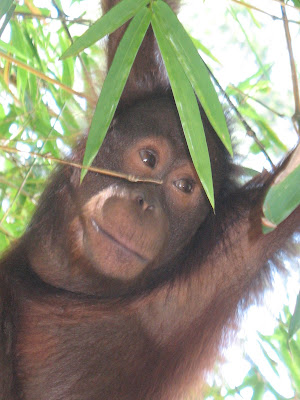The ancient possibility
of knowledge that China possesses is well placed to resonate effectively
with the Primal episteme. This is because it incorporates a knowledge of mankind
alongside that of other things.
The ancient possibility
of knowledge that China possesses is best appreciated in contrast to the dominant possibility of knowledge in the Modern Western
world. One of the key defining
features of the Modern Western world is the Modern episteme as defined by
Michel Foucault. Within the Modern episteme the role of “epistemological man” is
central and definitive (Foucault 1970; Birkin & Polesie 2011). Briefly the significance
of “epistemological man” means that knowledge in the Modern Human sciences is a
knowledge that has been created
of man, by man and
for man.
This means that knowledge in the Modern Human Sciences is
made possible by reflexive self-referencing; a kind of
species-solipsism. This helps to explain how Modern progress has benefit man at
the expense of the natural world. It has done so because knowledge in the
Modern human sciences did not recognise a natural world as may be proven
by a quick examination of any standard Modern text explaining how mankind is to
be organised to increase its own wealth; i.e. economics, accounting and management
where nature per se does not exist. This
is a key driver of unsustainable development.
So how does ancient China differ? It differs in many ways
that for the moment we can represent simply by Tian
Xia which may be translated as “All under Heaven”. The concept of Tian Xia is closely associated with civilization and order in
classical Chinese philosophy, and it has formed the basis for the world view of the
Chinese people and nations influenced by them since at least the first
millennium BC. A first point to notice is the age of this concept - the
first millennium BC - which is indicative of its intrinsic sustainability. (In
contrast the Modern episteme in the West lasted a mere 200 years old before it
undermined its own existence with unsustainable forms of development.)
We should be aware that Tian
Xia in its application and development in China was not of course all good.
It did for example underpin the idea that the Chinese emperor acted with a
Mandate from Heaven and as such was effectively the centre of the world and all
powerful.
However, the significance of Tian Xia for present purposes is that it was not based on a possibility of knowledge that referred its own origins back to itself as in the Modern episteme’s knowledge of
man, by man and for man. Tian Xia
embraced – as it says – “All under Heaven”.
 |
| Tian Xia or "All under Heaven" |

